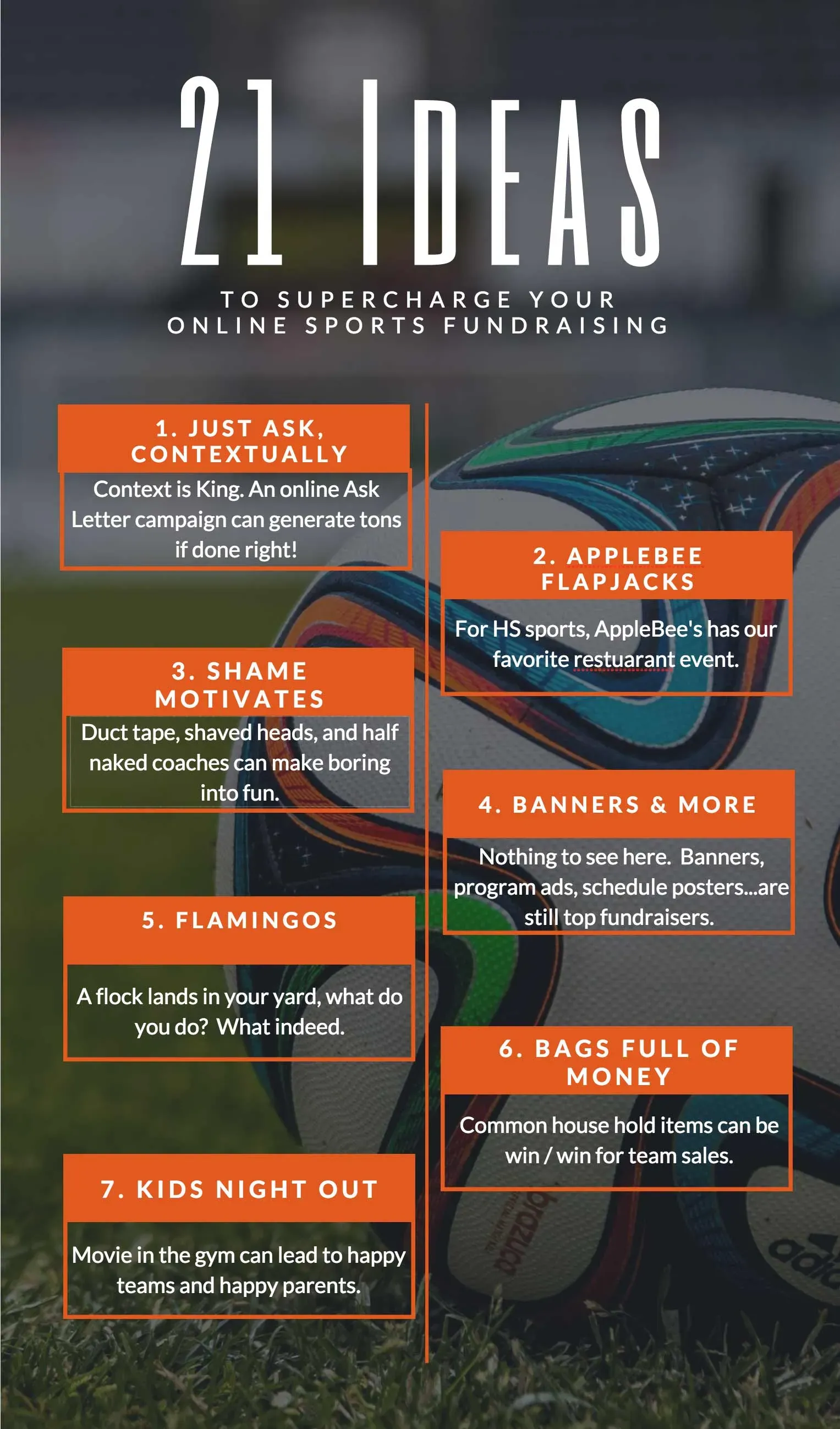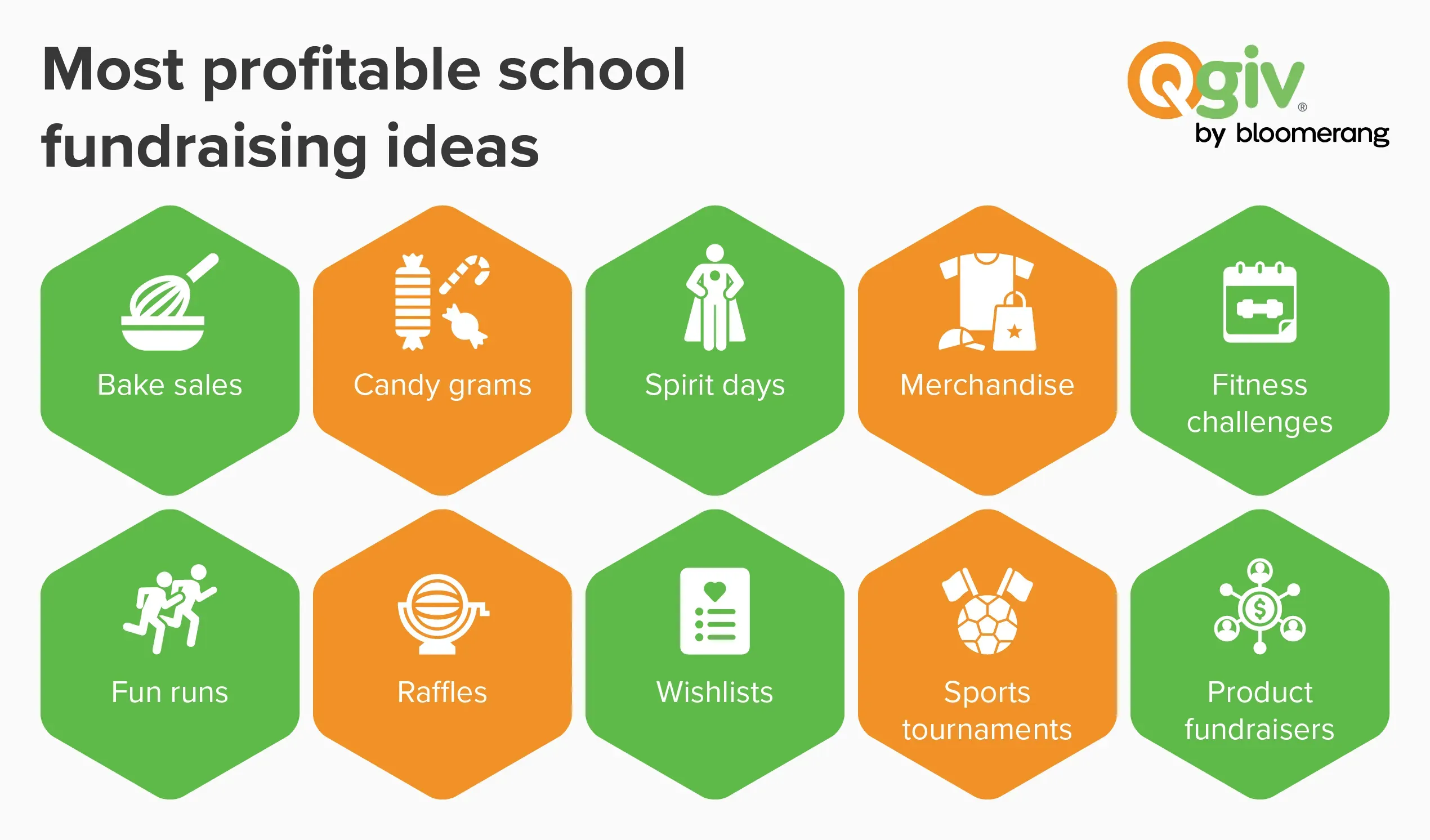Table of Contents
So, your middle school group needs cash. Maybe it's for new science equipment that doesn't look like it survived the Eisenhower administration, or perhaps that field trip that involves something more exciting than the local sewage treatment plant. Whatever the reason, raising money can feel like trying to herd cats while blindfolded. Asking middle schoolers to run complex campaigns? Good luck with that. They're busy mastering TikTok dances and figuring out why homework exists.
Why Easy Fundraising Works Best for Middle Schoolers

Why Easy Fundraising Works Best for Middle Schoolers
Look, let's be real. Middle schoolers are still figuring things out. Their attention spans can be shorter than a viral video, and complex tasks often lead to glazed-over eyes or outright rebellion. This is precisely Why Easy Fundraising Works Best for Middle Schoolers. They need methods that are simple to grasp, don't require endless training sessions, and offer quick wins. Trying to get them to manage intricate donor databases or cold-call local businesses? It's a recipe for frustration, for them and for the adults involved. Easy fundraisers minimize the potential for errors, reduce the time commitment required from overwhelmed teachers and parents, and crucially, increase the likelihood of student participation because the barrier to entry is low. When it's easy, they're more likely to jump in and actually help.
Top Easy Fundraising Ideas for Middle School Students

Top Easy Fundraising Ideas for Middle School Students
Simple Sales That Actually Work
Alright, let's talk about selling stuff. Not the complicated, high-pressure sales pitches nobody wants to hear. We're talking about things people actually need or want, sold in a straightforward way. Think about products with a clear value proposition. Things like cookie dough, popcorn, or even high-quality wrapping paper around the holidays. These are items parents might buy anyway, and buying through the school fundraiser feels like a win-win. The key here is a simple order form, clear delivery dates, and maybe a prize incentive for the students who sell the most. Keep the product list short and sweet; too many options overwhelm everyone.
Another angle is selling services. A weekend car wash (weather permitting, obviously) where students rotate through drying and washing duty. A "chore day" where students offer to do yard work or run errands for a set donation. These require a bit more organization regarding scheduling and supervision, but they tap into the community's willingness to support local kids while getting something done around the house. It feels less like a handout and more like an exchange of value, which donors often appreciate.
Event-Based Fun That Raises Funds
Events can be goldmines if they're easy to organize and appeal to the middle school crowd and their families. Think about a movie night in the gym – throw down some mats, project a popular movie, and sell popcorn and drinks. Charge a low entry fee, and you've got a simple revenue stream. It’s low-cost to put on and requires minimal student effort beyond setting up chairs and maybe handling concessions. Another winner is a talent show. Let the kids showcase their questionable dance moves or surprisingly good singing voices. Charge admission, maybe have a small fee for performers, and sell concessions again. Parents and grandparents will show up to support their kids, guaranteed.
Consider a "Penny War" or "Change Drive." Set up jars in each classroom or grade level and have students compete to fill their jar with coins. Pennies add positive points, while silver coins or bills add negative points to another team's jar. It's messy, competitive, and requires almost zero organizational effort beyond providing containers and counting coins later. It's surprisingly effective because it taps into that inherent middle school need to "win" against their peers.
- Cookie Dough Sales: Simple product, easy order forms.
- Car Wash: Requires supervision, but offers a service.
- Movie Night: Low cost, high potential for attendance.
- Talent Show: Engages students and parents.
- Penny War: Competitive and requires minimal setup.
Making Your Easy Middle School Fundraiser a Success

Making Your Easy Middle School Fundraiser a Success
Set Clear, Realistic Goals
you've picked one of the *easy fundraising ideas for middle school students*. Now what? First off, figure out exactly how much money you need and what it's for. Don't just say "we need money for stuff." Be specific. Is it $500 for new basketballs? $2,000 for a field trip deposit? Putting a concrete number and purpose out there makes it real for everyone involved – students, parents, and potential donors. When people know *why* they're donating or buying that popcorn, they're much more likely to open their wallets. Communicate this goal constantly. Put it on flyers, in emails, announce it at school assemblies. Transparency builds trust and motivates people.
Get Everyone on Board
An easy fundraiser still needs people to make it happen. You can't just announce a cookie dough sale and expect magic. You need buy-in from the students, obviously, but just as important, you need the parents. They're the ones with cars for deliveries, connections for potential bulk orders, and let's face it, the actual money. Hold a quick parent meeting or send out a clear email explaining the fundraiser, how easy it is, and how their participation directly helps their kids. Give students simple roles – maybe one is in charge of tracking sales, another helps sort orders. Even small jobs give them ownership. The more people feel included, the less the burden falls on just a few.
Role | Suggested Task | Who Might Do It? |
|---|---|---|
Student Lead | Track sales forms | Responsible 7th or 8th grader |
Parent Volunteer | Help sort/distribute orders | Stay-at-home parent, work-from-home parent |
Teacher Advisor | Oversee logistics, motivate students | Classroom teacher, club advisor |
Say Thank You and Follow Up
This step gets missed way too often, and it's a big mistake. After the fundraiser wraps up and the money is counted, send out thank you notes. A simple email to everyone who participated or donated works. Have the students write a few thank you cards to major donors or key volunteers. It teaches them gratitude and makes people feel appreciated. Also, share the results! Tell everyone how much money was raised and exactly what it's going towards. Did you hit the goal? Exceed it? Even if you fell short, reporting back closes the loop. It shows accountability and makes people more willing to help the next time you launch one of your *easy fundraising ideas for middle school students*.
Your Questions About Easy Fundraising Ideas for Middle School Students Answered

Your Questions About Easy Fundraising Ideas for Middle School Students Answered
so you've seen some ideas, but maybe you're still wondering about the nitty-gritty. Like, how do you handle the money without it disappearing into the vending machine abyss? Or what if the kids just aren't motivated? For handling cash, designate one or two trusted adults (teachers or parent volunteers) to collect and count everything immediately. Use secure envelopes or bags, and keep clear records – a simple spreadsheet works wonders. As for motivation, tie the fundraising directly to something the students care about. Instead of "money for the school," frame it as "money for the new speaker system for the dances" or "money to lower the cost of the end-of-year trip." Peer pressure (the positive kind) can also work; offer small, fun incentives for the grade level or class that raises the most. Sometimes, just making it a competition is enough to get them moving.
Wrapping Up Your Middle School Fundraising Efforts
Look, nobody said fundraising with middle schoolers would be a walk in the park. But by focusing on *easy fundraising ideas for middle school students*, you cut down on the chaos significantly. Simple concepts mean less confusion, less chance of things going sideways, and a higher probability that the kids (and the adults wrangling them) will actually see it through. It's about picking battles and choosing methods that align with their attention spans and capabilities. Don't overcomplicate it. Get the money needed for those slightly less-ancient microscopes or that trip that doesn't smell like methane, and move on. That's the real win here.
